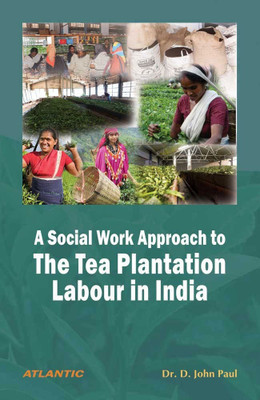A Social Work Approach to the Tea Plantation Labour in India(English, Hardcover, Paul D. John)
Quick Overview
Product Price Comparison
The socio-economic and working conditions of the tea plantation labours in India requires immediate attention. The employment in the tea plantation depends purely on the use of ŌĆśmaster-servant relationshipŌĆÖ. This is a clear reminder that the labour force often consists of the descendants of the migrant labours whose rights are few, working conditions frequently grim, education minimal, and health poor, in many instances worse than that of similar labours outside the plantations. Though the number of tea gardens have been reduced, the number of workers and their dependants have increased manifold. This has opened the gate of innumerable socio-economic and political problems within the state. This book presents a panoramic view of the tea plantation laboursŌĆÖ scene in contemporary India. Employment relations and working conditions in the tea plantation sector are examined in the context of the existing legal provisions to protect the laboursŌĆÖ interests in this largely exploitative system. Based on the social work and other social sciencesŌĆÖ intervention, the study throws a new light on the possibilities and limitations of popular participation in the development of tea plantation labours in India. Critical issues of agrarian reforms and living and working conditions of the poor tea plantation labours have been against the background of existing provisions and inability of the labour force to access the same. Though not claiming to deal with all aspects of the labour scene in India, the work does provide a fresh perspective of critical labour issues of today and tomorrow. To that extent it should stimulate further discussion among policy-makers, administrators, employer organizations, trade union federations, scholars, international N.G.Os. and others concerned with labour problems. The recent starvation deaths in North Bengal tea plantations supports my work. Finally, this book is written in order to bring out the poor plight of the tea plantation labours and the various problems including the occupational risks and health problems faced by them. Not many knew that tea is the product of enormous hardship by a labour who has slogged it out in a far away plantation. This work will be more useful to bring it to the light the fact that the tea which relaxes us is the fruit of cumulative toil of the poor labourers who work hard round the clock and produce this ŌĆ£Black DiamondŌĆØŌĆöthe most common beverage of the world.


